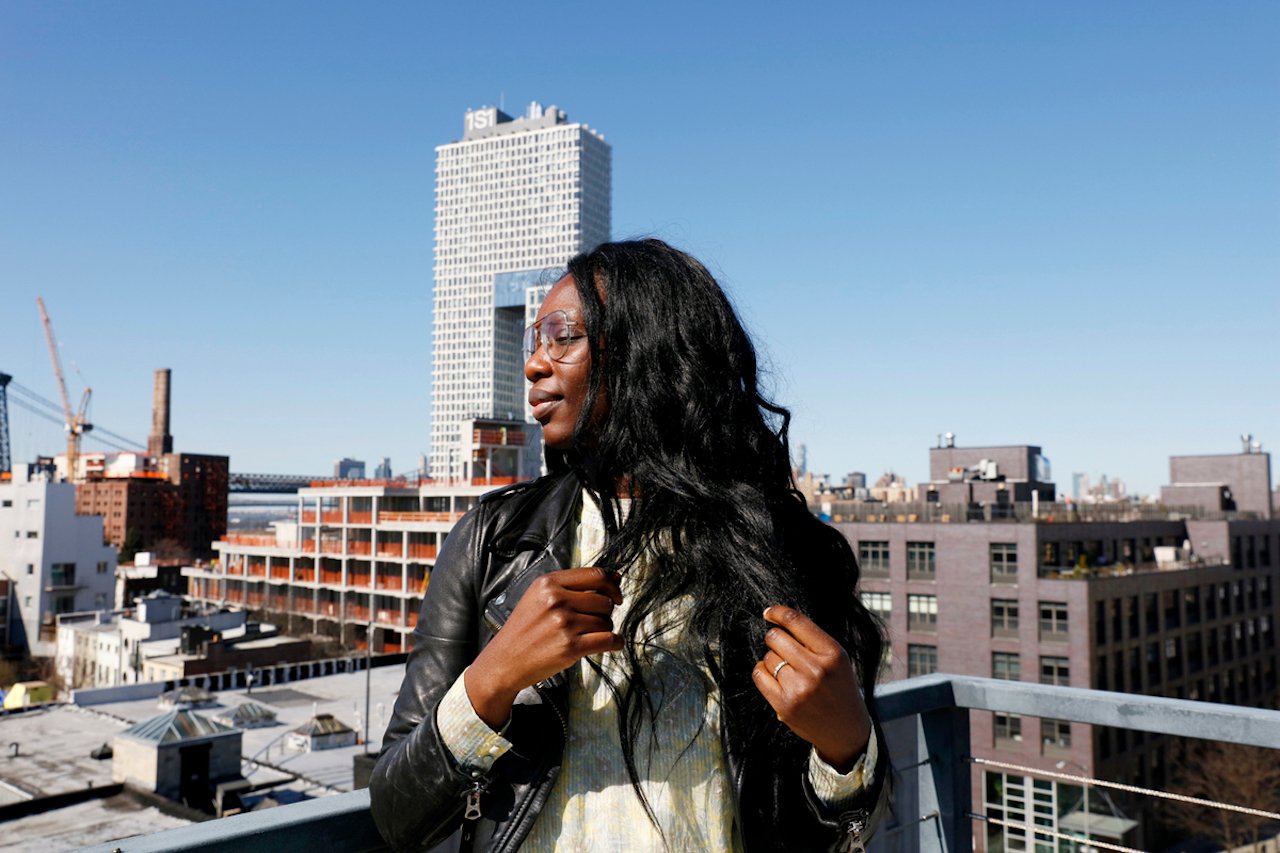Creating something meaningful—something that lasts and leaves a legacy—starts with intention. Even those spontaneous bursts of inspiration have to be grounded in purpose to transform from an idea into something tangible. Whether you’re trying to create a new habit or start a business, intention will guide you during the tough moments. That’s the root of resilience. The courage to pursue a goal is only possible when you know why you’re doing it. And when you lead with this kind of intention, others will follow.
The brands that resonate most deeply all have a clear sense of intention at the root. Some connect people, some speak to an underrepresented need, and some give a voice to marginalized communities. This Women’s History Month, we’re shining a light on the inspiring female beauty founders whose purpose-led brands stock our shelves and make up our most intimate routines.
Featured image from our interview with Marie Kouadio Amouzame by Belathée Photography.
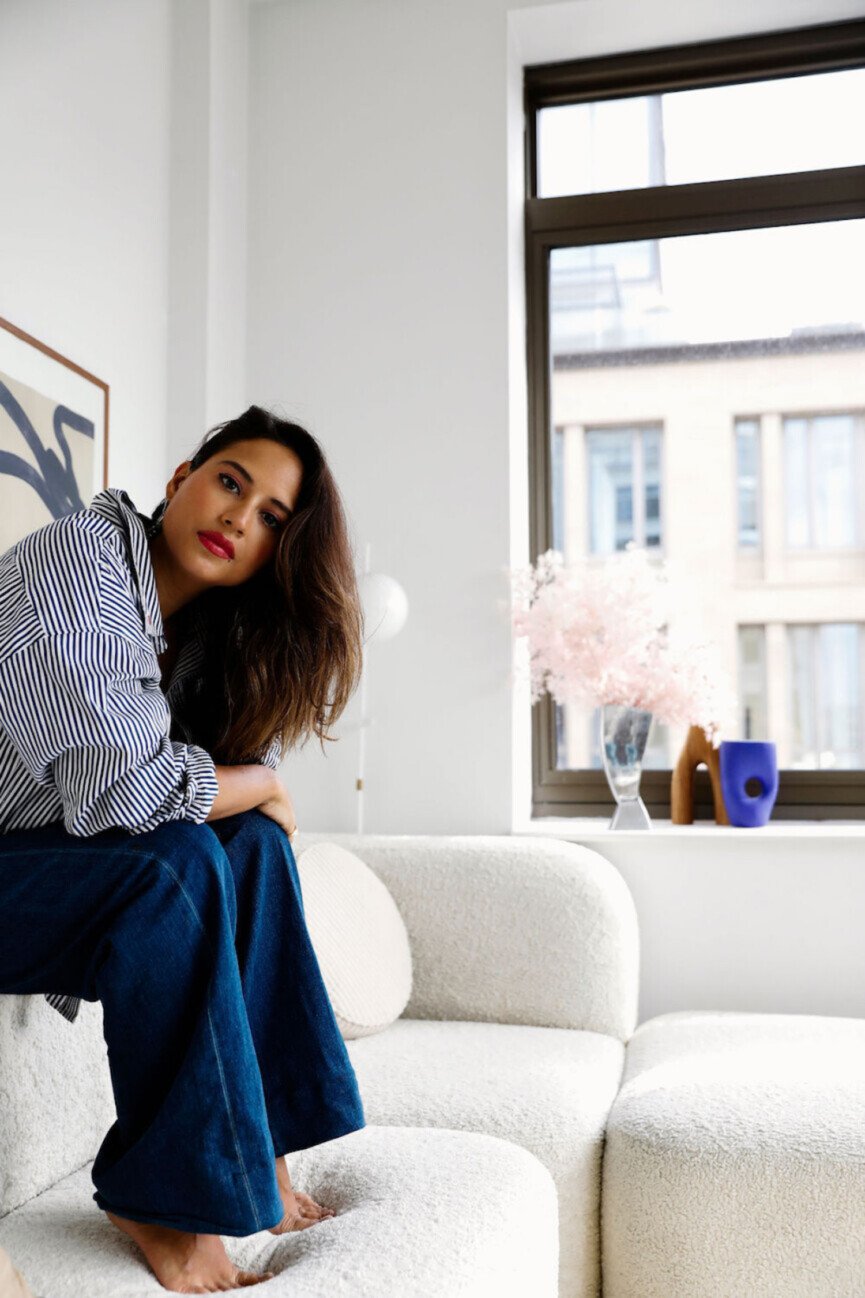
The Female Beauty Founders Inspiring Us Right Now
Here’s an alarming fact: many of the world’s biggest beauty brands are not led by women. For an industry catering to women, larger brands are still helmed by men. Independent female beauty founders are proof that the business of beauty is not as glamorous as we might imagine. From struggling to secure funding to creating the perfect formula for our faces, female beauty founders face challenge after challenge before finally making it to store shelves.
Resilience is about learning from setbacks, adapting to change, listening to our community, and steadfastly believing in our mission.
Alice Lin Glover, EADEM
If you look back at the beauty industry over the last ten years, so much has changed. DTC brands are the norm, and we more opportunities to be discerning about what to buy and who to support. This is no accident. It’s all thanks to female beauty founders who wanted to create new definitions of beauty.
These women all had very clear intentions at the root of their businesses. And this is what got them through the hard days and inspired them to define beauty on their own terms. Ahead, these successful founders share the intentions behind their brands and how they showed resilience on the road to success.
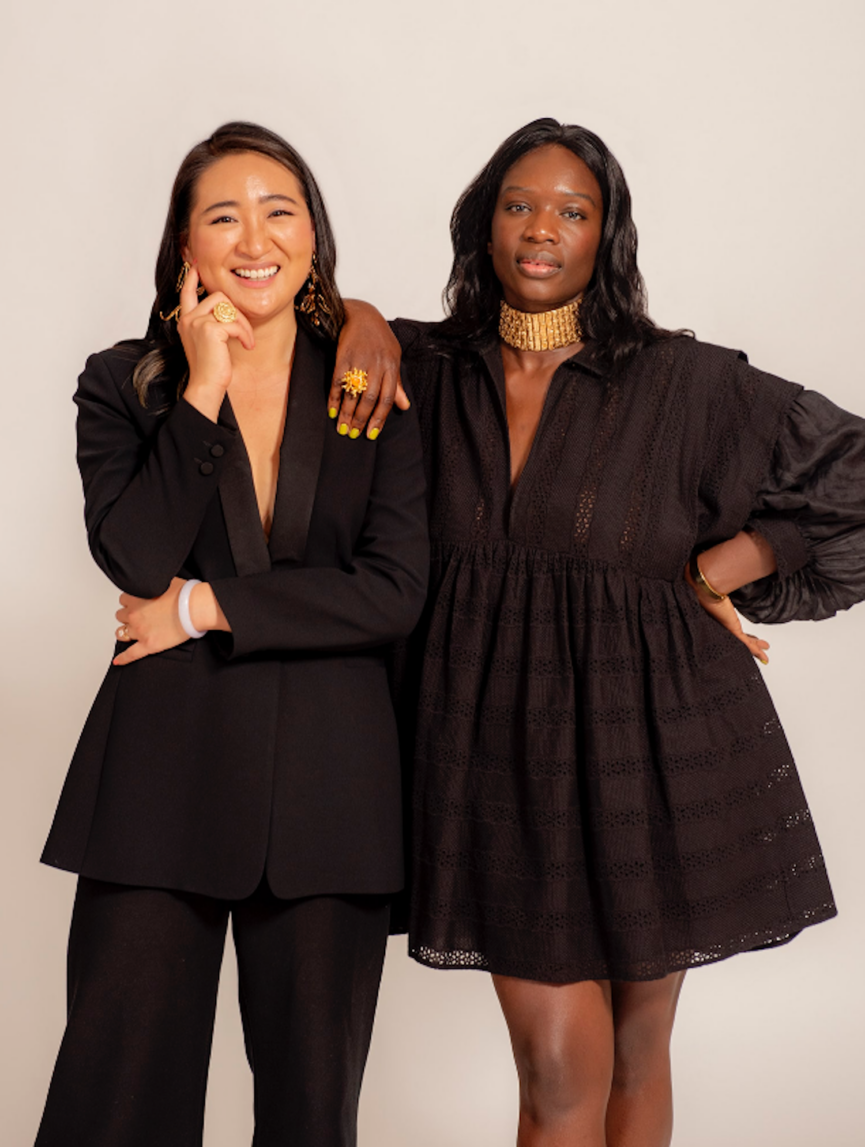
Alice Lin Glover and Marie Kouadio Amouzame, Co-founders of EADEM
Why did you start EADEM?
Alice: Since childhood, I’ve battled severe cystic acne and eczema, leading me to invest significant time and money in visits to dermatologists, estheticians, and traditional Chinese medicine practitioners. However, as I became more educated about skincare, I was shocked to discover that many products I relied on contained hydroquinone, a banned ingredient in the EU and several countries across Asia and Africa. As I dug into the research behind what’s in our beauty products even further, I realized there was an urgent necessity for safe and tailored skincare solutions specifically designed for women of color.
Coincidentally, my friend Marie, a former colleague from my time at Google, shared my lifelong frustrations regarding representation in the beauty industry. Together, we embarked on creating EADEM, a brand that’s crafted to address the distinctive skincare needs for skin of color. What we learned was that when we designed for skin of color first, it works better on all skin types and skin tones—even most sensitive skin.
What makes EADEM unique?
Alice: Navigating the beauty world is a personal and vulnerable journey, especially for women of color. Growing up, Marie and I often wondered: were the products out there really made with us in mind? Sadly, to this day, the answer is typically a resounding no. So, right from the start, we made it our mission to create formulas that cater specifically to our diverse skin tones and needs. Everything we do, from creating products to how we speak about them, is all about celebrating our beauty and our multitudes.
Our formulation philosophy is built on what we call Smart Melanin™ Technology, ensuring every ingredient in our formulas are used at the just right dosage, clinically-proven on skin of color so you can trust it’s the most compatible and efficient without irritating.
Everything we do, from creating products to how we speak about them, is all about celebrating our beauty and our multitudes.
Alice Lin Glover, EADEM
What obstacles did you face?
Marie: Beauty is such a personal journey, and as a business entrepreneur in this industry, you often have to make your case in male-dominated rooms. It can be a vulnerable conversation. And at times, it can be challenging to communicate the nuances and needs of women. This becomes twofold when speaking about the specific needs of women of color. However, we know it’s critical to share a platform for those voices and are proud of the work we’re doing with EADEM to lend a platform.
Alice: Even being further along in our brand’s journey, every day brings its own mix of victories and obstacles. We’re incredibly thankful for our devoted community and the guidance of our mentors to support us through these moments. From the start, we faced so many stereotypes and misconceptions about skincare products tailored for people of color. Needless to say, forging our own path in this industry hasn’t been easy.
For instance, it’s a proven fact that hyperpigmentation ranks high among the concerns for people of color. However, in discussions with potential partners and insiders in the industry, it became evident that there’s a significant gap in education and awareness on this matter. Some even questioned whether people with darker skin tones could experience hyperpigmentation at all; we found ourselves showing them examples on our own skin to prove our point. And it’s an industry-wide issue. We discovered that brands have to pay a premium to conduct clinical testing on skin that’s not white, so many companies actually forgo testing on diverse skin tones completely.
What does resilience mean to you as a female founder?
Alice: Resilience is about learning from setbacks, adapting to change, listening to our community, and steadfastly believing in our mission.
Any advice for other female founders?
Alice: In my early career, I was completely focused on optimization. At the time, success meant getting the best career at one of the top companies. It was about external validation in that way. But I’ve realized that you can have multiple career paths and lives in the span of one, so don’t hold back from pursuing whatever interests you most. Just take that first step toward it, however daunting it seems!
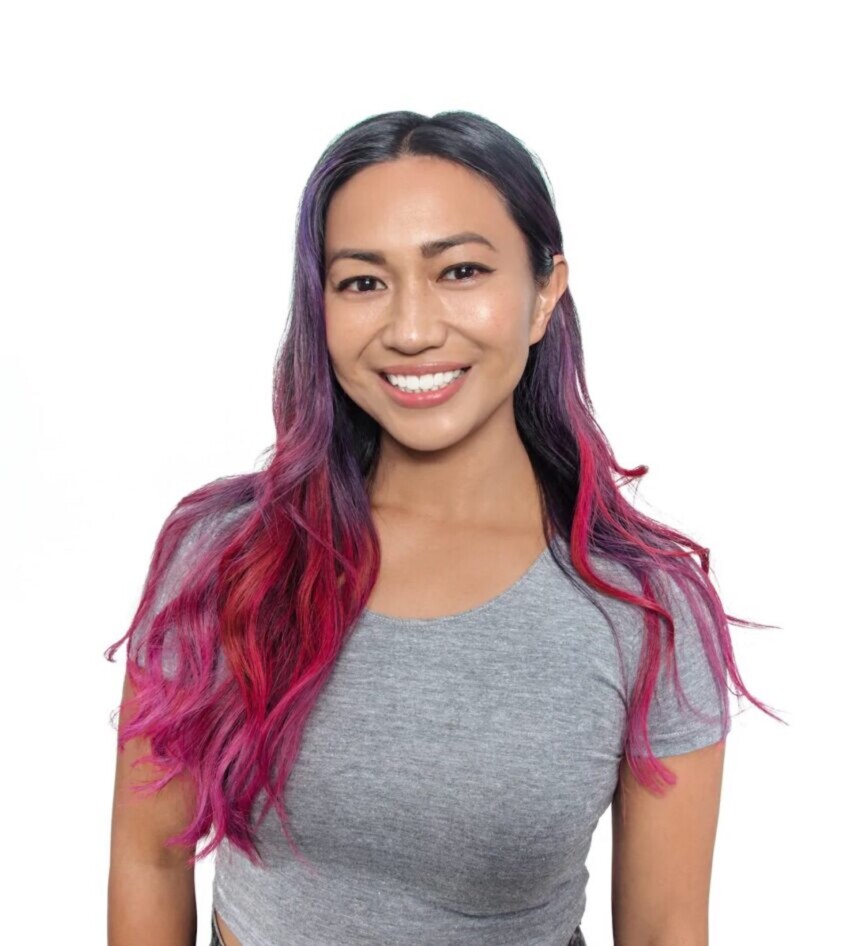
Joyce de Lemos, Co-founder and Clinical Cosmetic Chemist of Dieux Skin
Why did you start Dieux Skin?
From my experience in the industry, I learned that customers often felt distant or detached from the products that they were purchasing. We wanted to create a brand that offered transparency to our community.
We wanted to provide a world full of education to empower them to make the right decisions for themselves. We didn’t want to create another brand that sold miracles or dreams. We wanted our community to get real answers to questions like What ingredients are in this moisturizer? How do they work? How much does this ingredient cost, and where does it come from?
We offer effective, clinically tested formulations along with transparency and education to help empower our customers.
Resilience means committing to your vision, no matter what.
Joyce de Lemos, Dieux
What obstacles did you face?
When we started the company, we were a team of three. Needless to say, we had our work cut out for us. From formulating, filling, and packing samples in my apartment to creating all of our social content to designing packaging, we were doing it all. It was a crazy start, and I’ll never forget how far we’ve come.
What does resilience mean to you as a female founder?
Resilience means committing to your vision, no matter what. This means believing in the value and feasibility of what you’re trying to achieve. There are going to be so many people along the way who will question you, diminish your work, and make you question yourself. During those times, you have to dig deep and remember your true value, yourself, and that you’re doing your best. There’s so much power in being your own number-one cheerleader. It keeps you buoyant and motivated during the roughest times.
Any advice for other female founders?
Develop strong relationships with other female founders. Don’t be afraid to be earnest and vulnerable with them about your accomplishments and failures. There is so much to learn from one another’s experiences. It’s such a beautiful thing to be able to share notes, commiserate, celebrate, and motivate each other during this wild journey.
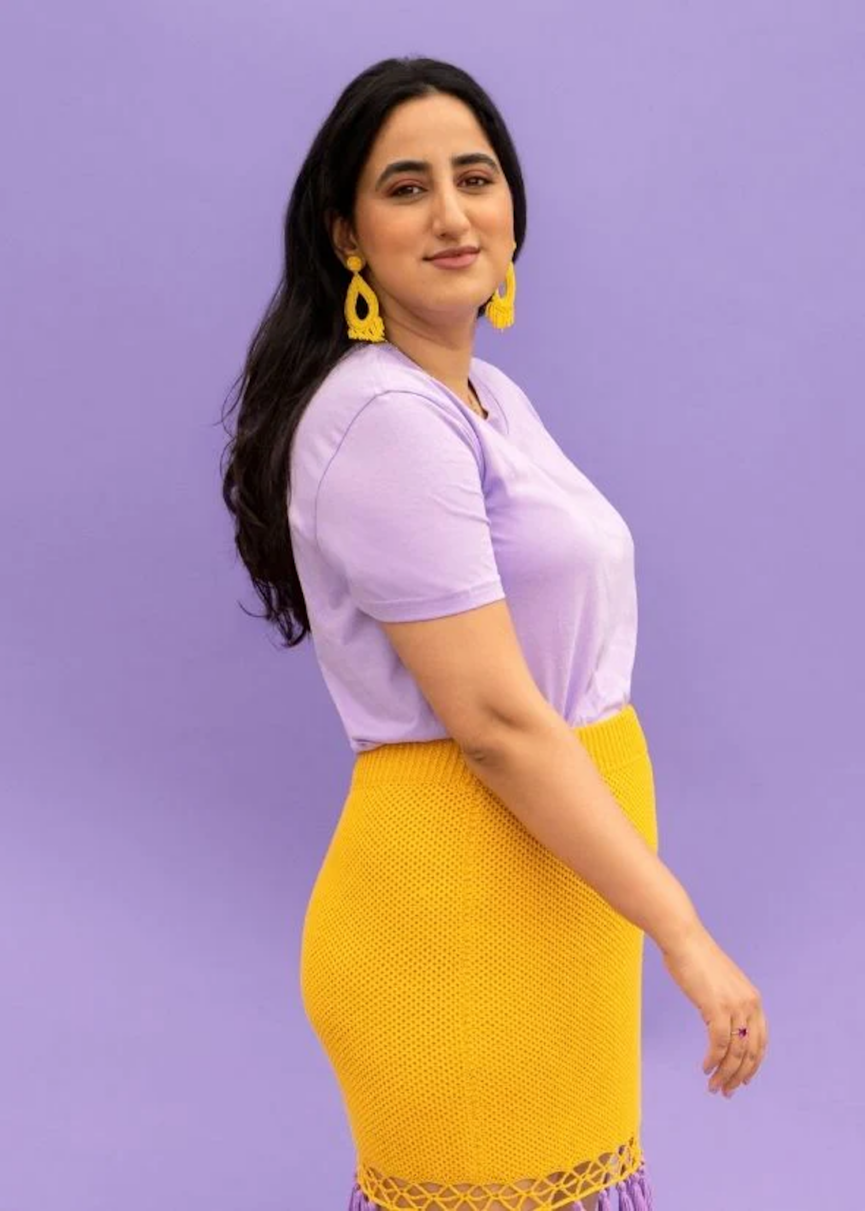
Priyanka Ganjoo, Founder of Kulfi Beauty
Why did you start Kulfi?
After a five-year-long career on the corporate side of the beauty industry, I saw first-hand how South Asians were being underrepresented in beauty. I was constantly searching for products that matched my skin tone, and finding products tailored to skin tones and undertones like mine was challenging. I was tired of feeling like an outsider in the beauty industry. That’s why I set out to create a more inclusive beauty conversation, and so I launched Kulfi in 2021.
Kulfi is a beauty brand centered around joy, and celebrating South Asian beauty rooted in culture. We’ve been in business for just three years now, and our success has been incredible. Our cult-favorite kajal eyeliners, concealers, and eyeshadows have won awards from Allure, Byrdie, and more for their innovative formulas and undeniable odes to South Asian culture. Kulfi is also the first South Asian-owned and inspired makeup brand to launch at Sephora!
What makes Kulfi unique?
We’re creating products that bring joy to your everyday makeup routine. We do research on undertones to create new and unique shades and textures that complement a diverse range of skin tones.
Our purple blush went viral when it launched last year because it was a pink-toned purple that was flattering on olive undertones. Our eyeshadow formulas are the easiest one-and-done shadows you can use.
The intention behind these products is to make self-expression through color inclusive to all skin tones.
Priyanka Ganjoo, Kulfi
What obstacles did you face?
Access to funding is the biggest challenge for women of color entrepreneurs. Prior to our launch, I did hundreds of investor calls with no success. Funding from family and friends is typically the way to get started. But that is harder for immigrant entrepreneurs and women of color as we don’t have the same networks with wealth that can provide the level of support needed to scale a beauty business today.
I faced rejection from industry insiders when I first pitched my idea and heard feedback such as “South Asian-inspired beauty was not aspirational.” I built the brand during the pandemic when color and makeup were also not doing well, so there was a lot of pessimism around the category from investors and retailers. In those moments, what kept me going was listening to the small community we had built on Instagram, which sent us encouragement and support.
What does resilience mean to you as a female founder?
For the past few years, resilience meant showing up every day and continuing to step forward. Now, I find resilience also means listening to your instincts, including moments when you need to pause, take a step back, and reset. Entrepreneurship culture can be about hustling every day, but that can be unsustainable and unproductive in the long run. I now try to be more selective on which challenges I focus my energy on.
Any advice for other female founders?
Finding your support network of founders makes the journey more fun, especially if you are a single founder. I love getting on a long call with one of my founder friends to celebrate our wins and talk about the challenges. I’ve found so many cool, creative people through my entrepreneurial journey!
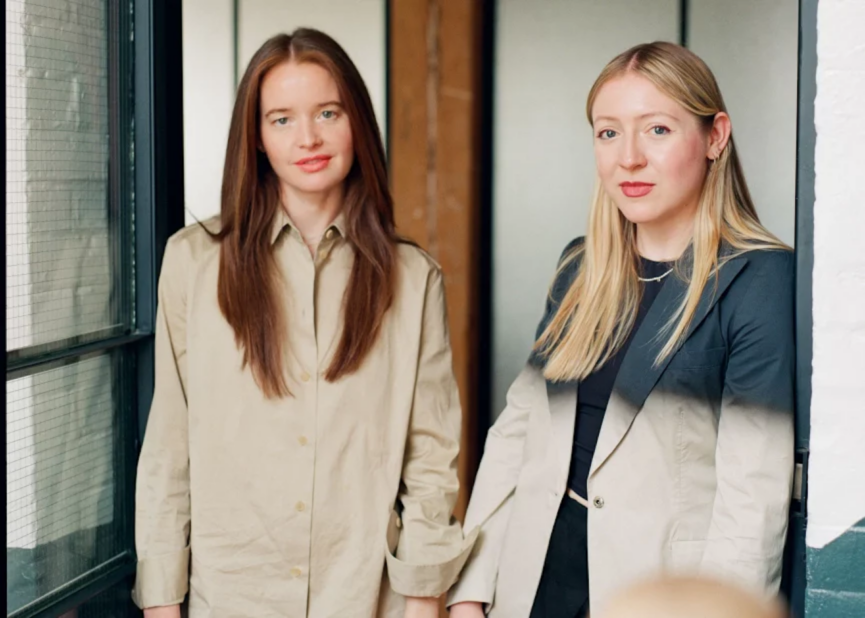
Camille Katona and Stephanie Spence, Founders of 19/99
Why did you start 19/99?
We both love makeup and how it can be used to empower and express. But there was a disconnect between how we used makeup in our daily lives and the messaging that the beauty industry used to sell makeup as a corrective tool.
In an industry that focuses on correction, we wanted to create tools for expression. We saw an opportunity to change the conversation around how one ‘should’ use makeup and create a brand that empowers individuals to define beauty on their own terms.
The beauty industry has taken too long to catch up with the older consumer, who is still active and engaged and still wants to have fun with makeup.
Camille and Stephanie, 19/99
What makes 19/99 unique?
19/99 is beauty for everyone ages 19 to 99. The beauty industry has taken too long to catch up with the older consumer, who is still active and engaged and still wants to have fun with makeup! Our brand not only includes the older consumer—which we saw as a gap in the market—but our product is multi-purpose, offering and encouraging the customer to do more with less.
What obstacles did you face?
The biggest challenge has been getting our brand out there with a minimal budget. We are still self-funded, which has forced us to be creative with every dollar. We have worked with some amazing friends and family along the way and are just getting started.
What does resilience mean to you as a female founder?
Resilience is growth. You will only grow if you learn to overcome challenges.
Any advice for other female founders?
Don’t be afraid to ask for help and stay focused. Be creative and find ways to do more with fewer resources.
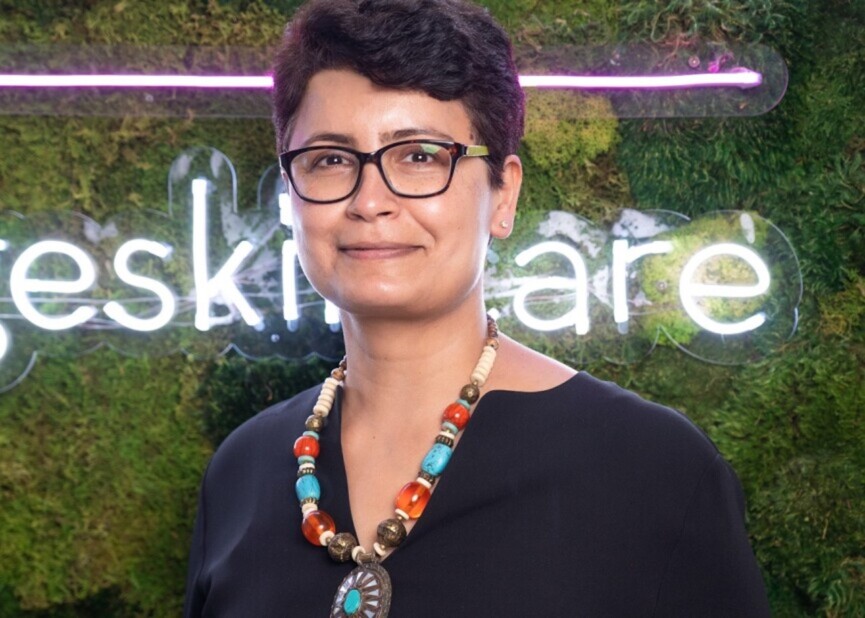
Anisha Khanna, Founder of Sonäge Skincare
Why did you start Sonäge Skincare?
Sonäge is derived from the French expression “Bien porter son âge,” which translates to “To look good for one’s age.” But our mission goes beyond that. Sonäge advocates a holistic lifestyle, changing the way we treat our bodies to feel good for our age.
Sonage Skincare was originally created as a safe and effective system for day spa professionals (estheticians). We have a progressive treatment protocol that improves the quality of our client’s skin without being aggressive or sensitizing it. In 2016, we started selling products and home care routines directly to consumers.
What makes Sonäge unique?
Sonäge addresses gaps in the market by providing EWG-verified, clean, sustainable routines and formulations tailored to diverse skin types and tones. It also offers personalized skincare solutions and transparent education about ingredients and practices. By taking a holistic approach to skincare and emphasizing inclusivity and transparency, Sonäge aims to meet the evolving needs and preferences of consumers in the skincare industry.
What challenges did you face?
As an Asian American founder, I’ve encountered numerous unique challenges, including difficulty securing funding despite a proven track record and an impressive 70% loyalty retention and reorder rate from our community. The dearth of mentorship opportunities for women of color has made it challenging to find guidance and support within the industry, significantly impacting our growth rate and ability to secure distribution channels.
What does resilience mean to you as a female founder?
To me, as a female founder, resilience means being completely open to new experiences, persevering in the face of any obstacle, and seeing genuine opportunities behind every roadblock. As an entrepreneur wearing many hats, finding balance in my own life is like chasing the holy grail. Understanding the power of smart pivots, recognizing great collaboration, and being conscious of decision-making play crucial roles in my journey.
Resilience means being completely open to new experiences, persevering in the face of any obstacle.
Anisha Khanna, Sonäge
Any advice for other female founders?
- Embrace adversity. Instead of shying away from challenges, view them as opportunities for personal and professional growth. Adversity fosters resilience, flexibility, and adaptability—qualities essential for entrepreneurial success.
- Step out of your comfort zone. Growth often occurs beyond familiarity. Challenge yourself to explore new territories, connect with diverse individuals, and expose yourself to fresh perspectives. You’ll be amazed at the insights you gain from these experiences.
- Seek mentorship. A supportive mentor can be a game-changer. Find someone who has trodden a similar path and glean wisdom from their journey. Mentorship offers invaluable guidance and encouragement, potentially reshaping the course of your entrepreneurial endeavors.

